Top 10 Disappointing Movies of 2016As is typical of many would-be blockbusters, sometimes things don’t work out the way we’d hoped. These films are no exception. In this list, we’re counting down the 10 most disappointing films of 2016. These movies either had massive buildup, great marketing, awesome trailers, or even looked like Oscar bait. When they came out, however, people were less than impressed, and were very disappointed with the final product. We’re not saying these movies are bad (some of them may actually be bad), but we’re a little pissed that they weren’t what we thought they were going to be when the trailers came out. Honorable Mention: The Revenant Hate me if you will. I wasn’t that big a fan of Leonardo DiCaprio’s Oscar-winning film. The trailer looked badass, with intense fight scenes, chilling visuals, and a Leo that looked like he’d go through anything to win (and boy, did he do anything and everything in this one) an Oscar he so desperately deserved. The Inarritu film is beautifully shot, and earned cinematographer Emmanuel Lubezki his third consecutive Oscar, and DiCaprio certainly suffers for his art, but The Revenant seems to be little more than that. Tom Hardy’s a great actor and a formidable villain, but there was far less action in the film than the trailers and reviews made it out to be. There was lots of pretty snow, though. It does receive an honorable mention, however. As, for what it's worth, it fares a lot better than some of the other films on this list. Dishonorable Mentions: The BFG Now, don’t get me wrong, I love Roald Dahl’s original children’s book The BFG. My third grade teacher read it to me. It holds a special place in my heart. I didn’t know how I felt about Steven Spielberg directing with Mark Rylance playing the titular friendly giant. Was it a children’s movie? Was it going to be some kind of magical Oscar bait? I think that was the problem for the film: it couldn’t figure out it’s target audience, and landed on a plot that was so coated in sugar, we couldn’t see some of the more human moments that the book offered. The film just barely recouped its budget at the box office, but many critics are calling The BFG a major career whiff for the great Steven Spielberg. Keanu Key and Peele are great. Their sketch comedy show is legendary, and it’s a shame that it ended. And Keanu looked like a really interesting film at the outset: it features Keegan-Michael Key, Jordan Peele, and a cat named Keanu. Hilarity looked like it was about to ensue. Unfortunately, the film was badly received when it premiered at the SXSW festival, and never really caught on as an upper-echelon comedy film. And that’s a shame, too, because Key and Peele are hysterical. Looks like they’ll have to try again to find another hit that brings them to the forefront of real comedy film stars. The Top 10: 10. Warcraft A film based on a massive online role-playing game. What could go wrong? Films based on video games have tendencies to be either subpar or just downright horrible. Warcraft fell right in the middle. Its visuals were stunning, but the characters were un-relatable (which made them unlikable), and the plot was hard to follow. I think we just ended up with a knockoff Game of Thrones film here. 9. Free State of Jones Matthew McConaughey was still at the high point of his career when this film was announced. He had won an Oscar for Dallas Buyer’s Club, and had starred in the critically acclaimed first season of True Detective. And when this Civil War-era drama was announced, everyone was gearing up for everyone’s favorite cool guy to return to the ceremony in February. That’s not going to happen after Free State of Jones. Not a lot was done to bring the true story of farmer Newton Knight to life, essentially. The film bombed at the box office, making back only half of its $50 million budget. 8. Alice Through the Looking Glass The first Alice in Wonderland wasn’t half bad. Tim Burton was the perfect director to take on Lewis Carroll’s bizarro world of Cheshire Cats and queens with overly large craniums. But Johnny Depp wasn’t able to save this one, as the magic and wonder he and Tim Burton (even though Burton didn’t direct the film) had achieved throughout their careers together had been lost. The film holds a 30% rating on Rotten Tomatoes, and for good reason. Also, P!nk wrote a song for the film. Not like it has a place being attached to the movie, but she wrote a song for it. So there’s that. 7. The Huntsman: Winter's War Much like I walked out of Snow White and the Huntsman, I walked out of The Huntsman: Winter’s War as well. How many times would they mention Snow White’s name without even showing her on screen? How many? I couldn’t tell if they wanted Kristen Stewart back, or if they were really trying to drive the point home that she was not in the movie. 6. X-Men: Apocalypse I really like the X-Men franchise. Days of Future Past was really good, and these spin-offs featuring Wolverine’s backstory are pretty cool. And I really thought Apocalypse would be on that same plane as well. Unfortunately, it was not the case. The plot and character development (or lack thereof) of these mutants we’ve come to know and love is marred behind gratuitous explosions, and even when we do get to see these characters really act, we find they’re becoming a little stale. If the franchise is going to survive post-Hugh Jackman, they’re going to need to find some fresh blood to reinvigorate the X-Men world. 5. Fantastic Beasts and Where to Find Them Did I miss something with Fantastic Beasts? With all the buildup and nostalgia from the Harry Potter franchise, I think we were all excited for the release of this Eddie Redmayne-helmed film. But after seeing it, I thought to myself: “Why did this movie need to be made?” I think the idea for most spin-off films is that they actually connect to the focal point of the franchise in some way. The Hobbit works with The Lord of the Rings franchise because Bilbo Baggins appears in the three movies himself. The Star Wars prequels and Rogue One work with the Star Wars trilogy because we’re shown backstories and events to all these characters and plot points. But Fantastic Beasts doesn’t do any of that. “Hogwarts” and “Albus Dumbledore” are mentioned once in the film, as if that will satiate all the Potter fanboys and girls. None of the characters change, Eddie Redmayne is in this movie merely for the sake of being cute, the subplot of the bad guy is blurred, and the film has a lot of sexist undertones to it. This film really had no purpose in being. I’m all for David Yates’ directing and J.K. Rowling’s writing, but they missed the point on this one. 4. Zoolander 2 We waited for 15 years for a sequel featuring Derek Zoolander’s patented Blue Steel™. The problem with Zoolander 2 was that the 15 years we were waiting showed. The jokes weren’t funny, the film tried way too hard to stay relevant with its humor, and the authenticity of the characters we knew and loved from the first film just felt fake. There’s something about early 2000s comedies that were the best, you know? Back when Ben Stiller, Will Ferrell, and others hit the right amount of funny? This one felt more like a large payday than something more for the fans. 3. Batman v. Superman: Dawn of Justice Christopher Nolan’s Dark Knight trilogy is comprised of three of the finest films of this century. When it was announced that a Batman vs. Superman film was in the works, the world flipped out. But casting Ben Affleck as Batman is the wrong decision. The guy can’t act for shit. Now, Man of Steel is a half-decent movie: the visuals are pretty good, and Henry Cavill is watchable as Superman. But I think continuing the franchise is another wrong decision. What would have been really cool is if they had gone with the supposed “God vs. God” angle we were given in the trailers, making it more about the people watching these two heroes fight and their reactions to the effects of their actions. 2. Independence Day: Resurgence Okay, so no one really expected the Independence Day sequel to be good, right? I mean, the idea that we knew the aliens would come back? That we had twenty years to prepare, and so did they? Come on. The first film in the franchise wasn’t the best either, but its memorable moments and likeable characters made it a classic. It’s nice to see some of the familiar faces in the sequel, but most of them are gone by the end. The attempted humor in the film doesn’t land, and the film just comes across sloppier and more stupid than the original. 1. Suicide Squad I think we all thought D.C. was finally going to get one right with Suicide Squad. Featuring an all-star cast which included Viola Davis, Will Smith, Margot Robbie, and Jared Leto, the film featuring some of the comic book universe’s biggest baddies looked to be onto something, particularly with the casting of Robbie as Harley Quinn and the Oscar winner Leto as the Joker. Unfortunately, audiences were massively let down by this one. Leto was not only featured in the movie for a measly eight minutes, but his Joker portrayal was being compared to that of the great Heath Ledger, and came off as unnecessarily cartoonish and wrong for the role. Also, I get that Leto’s a great actor, and he does the whole method-acting thing, but I think that his preparation for the role was just for show, like: “Look, everyone! I’m acting super crazy because I’m playing the Joker!” The film holds a 26% rating on Rotten Tomatoes, which means it’s probably about as good as the Panic at the Disco cover of “Bohemian Rhapsody” was necessary. Either way, it earns our title of biggest theatrical letdown of 2016.
What movies left you feeling ripped off this year? Leave a comment down below. You can check out the rest of According to Andrew's "Best of 2016" spread HERE.
2 Comments
Top 15 Film-to-Musical AdaptationsThere’s a reason they call it “commercial theatre.” More and more, Broadway producers are developing shows that audiences can trust. What’s the best way to do that? Turn popular films into Broadway musicals. Since 2000 alone, there have been nearly 50 musicals produced on Broadway that have been based on film. Some get it right, while others get it very, very wrong. In anticipation of the upcoming musical-film La La Land, we’ve created a three-list series, comparing the best of the film and musical theatre world. In this installment, we’ll be taking a look at the 15 best film-to-musical adaptations. You can find our list of the top 15 musical-to-film adaptations here, and our list of the top 15 completely original musicals here. With the assistance of resident film and Broadway connoisseur Harper Leander, we have compiled our selections on the following criteria:
Honorable Mentions: Grey Gardens “Oh, hi…” This 2007 musical is based on the 1975 documentary about Edith Ewing Bouvier Beale (“Big Edie”) and her daughter, Edith Bouvier Beale (“Little Edie”), the first Broadway musical ever to be adapted from a documentary. The musical follows the two women, who were the aunt and cousin, respectively, of former first lady Jackie Onassis Kenney, and the progression of their lives, as they descend from upper class society into reclusiveness and poverty. Much of the dialogue from the second act is taken directly from the documentary. The original Broadway production featured music and lyrics by Scott Frankel and Michael Korie, with a book by Doug Wright. Featuring Christine Ebersol and Mary Louise Wilson in the title roles (the two characters essentially switch between acts), the two were awarded the Tony for Best Actress in a Musical and Best Supporting Actress in a Musical, respectively. Bring it On: The Musical When it was announced that the book writer from Avenue Q, the composer of Next to Normal, the composer/lyricist of In the Heights, and Adolph Green’s daughter were writing a musical, an adaptation of the 2000 film Bring it On, the world was collectively ready to explode. And, for the most part, the musical was fairly successful. It’s got catchy songs and creative dance and cheer sequences. However, it ultimately takes a step down from everyone on the team’s preceding work, as the show fails to pack the punch of hits like Next to Normal and In the Heights. It’s still pretty fun to watch, though, and it did get a Tony nomination for Best Musical in 2012. 9 to 5: The Musical Based on the 1980 film staring Parton herself, 9 to 5 was the first time Dolly was able to branch out into the world of musical theatre with this 2009 smash. The original cast was packed with stars: Allison Janney, Stephanie J. Block, Megan Hilty, Marc Kudisch, Kathy Fitzgerald and Andy Karl, just to name a few. The plot follows three women (Janney, Block, Hilty) who live out their fantasies of getting even with, and eventually overthrowing their sexist, egotistical boss. The show received 15 Drama Desk nominations (the most for any show of 2009) as well as four Tony Award nominations. The Bridges of Madison County An underappreciated musical altogether, 2014’s Bridges was inspired by both the Robert James Waller 1992 novel, as well as the 1995 film starring Clint Eastwood and Meryl Streep. The show, about an Italian war bride who has an affair with a National Geographic photographer over a four-day span, only ran for only five months on Broadway, but won composer Jason Robert Brown two Tony Awards for best score and orchestrations. Critical reaction to the musical was mixed, but many praised Brown’s score and the acting of Kelli O’Hara and Steven Pasquale. Listen to “Another Life,” and “One Second and a Million Miles.” You’ll see what I’m talking about. While you’re at it, just listen to the whole thing. The entire score is electric, gripping, and emotional. The Top 15: 15. The Full Monty Nothing better than naked men on stage, am I right? Based on the 1997 British film of the same name, The Full Monty premiered on Broadway in 2000. While the musical relocates the setting to Buffalo, New York, the plot of the show is very similar to that of the movie, as we follow six Buffalo steelworkers tackling their insecurities and anxieties, while finding strength in camaraderie. I forgot to mention- they do this by deciding to perform a male strip act. David Yazbeck’s ear-worming, surprisingly emotional, and ultimately charming pop score works to perfection with Terrence McNally’s book. While it’s pretty common to have certain musicals deviate a little bit from their film source material, The Full Monty stays very true to form, making slight changes only for the change in location, making it work brilliantly. 14. Young Frankenstein Mel Brooks described Young Frankenstein as his best film. I wouldn’t necessarily say that’s true as far as his best musical adaptation (see Producers, The), but Young Frankenstein provides all the charm and hilarity as his 1974 horror comedy. Helmed by Roger Bart, Megan Mullally, Christopher Fitzgerald, Sutton Foster, Andrea Martin and Shuler Hensley, the original Broadway production opened in late 2007, and garnered three Tony nominations, one for Best Supporting Actress in a Musical (Martin), Best Supporting Actor in a Musical (Fitzgerald), and best scenic design. 13. Legally Blonde This show may not be the deepest. It may not be the most impressive. It may not have the best music or the best book. But Legally Blonde has one thing that sets it apart from the rest- heart. This adaptation of the 2001 film starring Reese Witherspoon is about a sorority girl who gets dumped by her boyfriend, then decides to go to Harvard Law School in order to win him back. While she’s there, she, her ex-boyfriend, and her peers, discover that underneath that head of blonde hair is a smart, unique, badass individual. As a perfect catalyst for the bubbly Laura Bell Bundy’s talents, Legally Blonde opened in 2007 on Broadway. The production numbers are some of the most fun you’ll ever experience, whether you’re in the show or not. You’ll also find that more people than you think can quote all the lyrics to “Omigod You Guys.” While there are some deviations from the film (Kyle the UPS guy being really good at Irish Step, and- spoiler- Elle doing what the film never shows and proposing to Emmett being just a few), Legally Blonde is a very solid film-to-musical adaptation- dare I say a very underappreciated one at that. 12. Waitress Waitress, the most recent entry on this list, is significant, firstly, for its all-female team, the first of its kind for a Broadway show. With a book by Jessie Nelson (I am Sam), direction by Diane Paulus (Hair, Porgy & Bess, Pippin), and a score by Grammy winner Sara Bareilles, Waitress (based on the 2007 film of the same name) is about, well, a waitress who, unhappy with her marriage, gets unexpectedly pregnant, begins an affair with her gynecologist, and finds herself in a pie baking contest. Jessie Mueller’s turn as Jenna (the waitress in question) is beautiful and haunting, as many critics described her performance as “a high point of the Broadway season.” Watch the Tony performance here, and take a listen to her sing “She Used to Be Mine.” Challenge: try not to cry. I wouldn’t be surprised if we saw Sara Bareilles give this role a try. I mean, she used to do theatre in school, after all. 11. Sister Act Whoopi Goldberg’s resume is impressive. Before the 90s, she had already been nominated for an Oscar (in The Color Purple) and won another (for Ghost). Sister Act is another show that is a benchmark in Whoopi’s career. That being said, the musical version of Sister Act, which premiered on Broadway in 2011, hits all its marks, as the film was basically tailor-made for a stage adaptation (for the most part). The production made a few changes between its West End and Broadway runs, hiring Jerry Zaks as the new director, and Douglas Carter Beane, who wrote a brand new book for the New York production. Patina Miller is fantastic as Deloris Van Cartier/Sister Mary Clarence, but that’s not to overlook performances by Victoria Clark and Marla Mindelle as Mother Superior and Sister Mary Robert, respectively (check out Mindelle in “The Life I Never Led.” Alan Menken’s score is ridiculously infectious, as you’ll see in numbers like “Raise Your Voice.” 10. Catch Me If You Can Competing with The Book of Mormon on Broadway when it opened in 2011, Catch Me If You Can is a swingin’ good time of a musical. If the 2002 Spielberg film set a precedent for the way Frank Abignale and Carl Hanratty were to be played, the musical certainly followed through. Rising Broadway star (who is essentially the Leonardo DiCaprio of today’s Broadway actors) Aaron Tveit was brought in to play the wily young Con-man Frank Abignale, while Tom Hanks’s Carl Hanratty was portrayed by Tony winner Norbert Leo Butz (who also won a Tony for this role). With music and lyrics by Marc Shaiman and Scott Wittman, Catch Me If You Can tells the story of a sixteen-year old who flees home and begins conning people out of money, cashing over $2 million in bad checks. His numerous disguises lead an FBI detective on his trail, as we are taking through the world of a pilot, a doctor, a lawyer, and a lover. It truly is a crime that this show never really found a target audience, because the score and performances are simply delightful. 9. The Color Purple The adaptation of the 1982 Alice Walker novel and subsequent 1985 Steven Spielberg film garnered 11 Tony nominations when it premiered on Broadway in 2006. Starring LaChanze, Brandon Victor Dixon, and Renee Elise Goldsberry, The Color Purple tells the story of a poor African-American girl named Celie in 1930s Georgia, and her experiences with extremely low social status, poverty, discrimination, sexism, and domestic violence, and how she ultimately transforms to find self-worth with the help of two strong female companions. The music for this show will take you to church, and I don’t mean in just the “there’s a church scene with some gospel music in this show” way. Stephen Bray, Brenda Russell, and Ailee Willis undertook the task of creating the tones of the American deep south, while ultimately giving the characters a sense of purpose, joy, and ecstasy. There’s also the book by Marsha Norman, which is like no other, as she captures the essence of these characters and their struggles perfectly. Also, I know I’m not supposed to talk about revivals, but Cynthia Erivo’s star has only just begun to shine because of this show. The good Lord works in mysterious ways. 8. Shrek the Musical Say what you want about Shrek the Musical. Just know that this one has a massive following, not just of the film (hence the tidal wave of Shrek memes that it has spawned), but also of the musical, as millions of people have taken a liking to the music of Jeanine Tesori and lyrics of David Lindsay-Abaire. Shrek the Musical follows just about the same plot as the 2001 film, as the titular layered ogre journeys with his fast-talking Donkey companion to rescue a princess, putting a spin on the way traditional fairy tales are told. This all-star cast hit Broadway in 2008, featuring Brian D’Arcy James, Sutton Foster, Christopher Sieber, John Tartaglia and Daniel Breaker, and garnered 8 Tony nominations in 2009. BDJ gets to show off his Scottish brogue (and from now on whenever I hear him speak or sing I always feel like he’s about to drop into it at any second), Sutton Foster gets to showcase her quirkiness as a performer, but it’s Chris Sieber who steals the show as Lord Farquaad, as the six-foot-something actor performs on his knees for the entirety of the show to hilarious effect. Not only is Shrek the Musical familiar to many audiences, it works so well as a Broadway show, due to the addition of the all-important fourth wall that a stage provides. 7. Billy Elliot the Musical This Best Musical winner premiered in New York from the West End in 2008, and received much critical and commercial acclaim upon arrival. With a book and lyrics by Lee Hall, music by the legendary Elton John, and directed by Stephen Daldry, who also directed the 2000 film on which the musical is based, Billy Elliot tells the story of a young boy who trades boxing gloves for ballet tights, all while set against the back drop of the Miner’s Strike in the UK. The movie adapts very well to the stage, as represented by the dance sequences, but the contrast between ballet and the cold, harsh realities of the miner’s strike are seamlessly and simultaneously played out on stage. Billy Elliot took home the Tony Award for Best Musical in 2009, along with 9 others. It was the first time that the award for Best Performance by a Leading Actor in a Musical was shared by three people: Trent Kowalik, Kiril Kulish, and David Alvarez took home the Tony for playing the titular dancer. 6. Thoroughly Modern Millie Millie is one of the most fun times you’ll ever have when going to the theatre, I promise you. The musical, based on the 1967 Julie Andrews film of the same name, follows one Millie Dillmount, as she moves to New York with the goal to marry for money instead of love (a “modern” concept of the early 1920s). She finds happiness in the “flapper” lifestyle, but encounters problems when she meets Mrs. Meers, a hotel owner who secretly owns a white slavery ring in China. Chaos and hilarity ensues. While the film was a musical already, and featured songs like “Jimmy,” the song that closes the first act, Jeanine Tesori’s music and Dick Scanlan’s lyrics add to the atmosphere perfectly, as songs like “Not for the Life of Me,” the ever-complex “The Speed Test,” and the catchy “Forget About the Boy,” make this a fun and unforgettable time at the theatre. Millie was also the show that propelled now-two-time Tony winner Sutton Foster to superstardom. During the show’s pre-Broadway run, Kristen Chenowith was originally slated to play Millie, and, after Chenowith moved on to pursue her own sitcom, Erin Dilly took over the role. Before previews on Broadway, Foster, Dilly’s understudy, was chosen to play the role. She would win the Tony for Best Performance by a Leading Actress in a Musical for her role, and Thoroughly Modern Millie would go on to win Best Musical in 2002. 5. Monty Python's Spamalot A musical “lovingly ripped off” from the legendary 1975 film Monty Python & the Holy Grail, Spamalot opened in 2005, and quickly became one of the hottest tickets on Broadway, winning the Tony Award for Best Musical in 2005. Created by Eric Idle, one of the founding members of the British surrealist comedy troupe, the musical tells the tale of King Arthur, as he assembles knights together in a holy quest for the holiest of grails. Of course, the musical does differ from the original film, because it has the added element of being able to spoof musical theatre itself. The show makes fun of love songs in musical theatre, the presence of Jewish people in show business, and even refers directly to shows like West Side Story and films like Yentl. And then we have the cast- a group of performers who are incredible individually, but even better together. For roles that really don’t have to do much but be funny, the producers of the show really hit a home run with this. Spamalot starred Tim Curry as King Arthur, Sara Ramirez as the newly added Lady of the Lake, Christopher Sieber as Sir Galahad, Hank Azaria (that Hank Azaria) as Sir Lancelot (among others), David Hyde Pierce as Sir Robin, and Christian Borle as a host of characters. Spamalot was directed by film and stage legend Mike Nichols. It garnered 14 Tony nominations, winning for Best Direction of a Musical (Nichols), Best Performance by a Featured Actress in a Musical (Ramirez) and Best Musical. Go see this show. Go see it. 4. 42nd Street Okay, so the 1981 Tony performance didn't have any tapping in it like THIS. Gimme a break. Once upon a time, in old New York, Broadway shows were full of lavish production numbers, with a full array of chorus members tapping and singing their way through songs. Nowhere is this truer than in 42nd Street, the musical adaptation of the 1933 film, which first premiered on Broadway in 1980. At the height of the Great Depression, notorious stage director Julian Marsh attempts to mount a Broadway show. A chorus girl from Pennsylvania gets thrust into the spotlight after the musical’s lead is hurt during a performance. DANCING. LOVE. GIANT DIMES. 42nd Street is your quintessential Broadway musical, with its show-stopping production numbers, insane tap routines, lots of men in tight pants, and a really cool “dictator director actually helps underdog chorus girl” story. With music and lyrics by Harry Warren and Al Dubin, plus direction by Gower Champion, 42nd Street took home two Tony Awards in 1981: Best Choreography for Champion, and the all-important Best Musical. 3. Once The entire back story of Once is almost incredulous. The 2007 film, on which the 2012 musical is based, was filmed in 17 days in Dublin, with a $150,000 budget (most of which came from the Irish Film Board, and director John Carney’s own pocket), and produced pretty much on a shoestring- the filmmakers used natural light and filmed on streets without permits, in their own houses, and other places. When Cillian Murphy dropped out of the lead role, Glen Hansard, who was slated to write songs for the film, ended up in the lead role alongside Marketa Irglova. The song “Falling Slowly” ended up winning the Academy Award for Best Original Song. And that’s just where the story begins. Using a troupe of actors/musicians, many of whom are on stage providing the music for the entire show, Once tells the story of two people who are drawn together through their love of creating music. It works so well, because it’s just about the music and the people creating it. Subtle, passionate, and full of heart, Once has the ability to captivate audiences with its simple, minimalist set, choreography and staging, yet emotionally vulnerable and complex characters and songs. The production in New York starred Steve Kazee as Guy (he won the Tony for Best Performance by a Leading Actor in a Musical) and Cristin Milioti as Girl. Once won 8 Tony Awards, including Best Musical. This bronze-medalist on this list is, in my opinion, one of the most important musicals of the 21st Century. 2. La Cage aux Folles In theatre, there is nothing better than men in drag, and watching them own the shit out of it. La Cage aux Folles is based on a combination of a 1973 French play and a 1978 Italian-French film. With music and lyrics by Jerry Herman and a book by Harvey Fierstein, La Cage takes places in Saint-Tropez, in a nightclub owned by Georges, who is married to his partner Albin (going by the drag persona of “Zaza”), and their farcical adventures around Georges’s son (from a one-night stand many years ago) Jacob, as he brings his fiancée and her parents to visit. The problem- Jacob’s future in-laws are ultra-conservative. Hilarity ensues. The show has been received by overwhelmingly positive review just about every time a new incarnation shows up on Broadway, particularly for the character of Albin, which has garnered two Tony Awards, one in 1983 for George Hearn, the other in 2010 for Douglas Hodge. The musical is hysterical, but also sweet and uplifting, as the characters deal with love, both for themselves and for others, as well as acceptance and tolerance of others. After writing the music for La Cage, composer Jerry Herman, vindicated, stated that he “had nothing else to prove” and “vowed never to write another show for Broadway.” This has remained true to this day. The original production of La Cage aux Folles won six Tony Awards, including Best Musical, Best Original Score, and Best Book (yay Harvey!). 1. A Little Night Music This show is a masterpiece. A masterpiece of theatre, I tell you. Sondheim’s inspiration for the 1973 musical came from the Ingmar Bergman film Smiles of a Summer Night. Set in Sweden in the early 20th Century, A Little Night Music centers around a complex web of love interests, which arise again when aging actress Desiree Armfeldt is visited by an old flame and their love rekindles. A weekend in the country provides the setting as a flurry of characters explore infinite possibilities of new romances, second changes, and an array of surprises. The way Sondheim wrote this show is masterful: every single song is in waltz time. EVERY. SINGLE. ONE. There are songs that challenge singers and musicians alike; songs like “Now”/”Later”/”Soon” must all be sung in the same key, which presents difficulties for both men and women, in both high and low registers. The idea of “threes” even extends to lyrics: trios have separated singers, while duets are sung together about a third person. Mind. Blown. Then there’s arguably his most famous song: “Send in the Clowns,” which he wrote on a whim for the original Desiree, Glynis Johns. Because Glynis was not a strong singer, “Send in the Clowns” was devised to that Glynis could act it rather than sing it; each phrase is short and ends with a consonant so as to limit the amount of breath needed to support longer phrases. The show won six Tony Awards in 1973, including Best Musical, Best Original Score, and Best Book of a Musical for Hugh Wheeler. This show is one of the cornerstones of the musical theatre realm, and- although it is hard to pick which work is Sondheim’s magnum opus, A Little Night Music is certainly right up there with the best of them.
What film-to-musical adaptations are your favorites? What films would you like to see made into musicals? Leave a comment down below. La La Land is in theatres beginning December 9th. Top 15 Musical-to-Film AdaptationsThere’s nothing better than a great musical film. From the dawn of cinema, stage musicals and plays have constantly been adapted for the screen, with many featuring music and elaborate dance numbers that one might see on stage. In some cases, movie magic makes some of these sequences seem even more spectacular. In the anticipation of the new musical film La La Land, opening in theatres on December 9th, we’re counting down the best in the world of musical theatre with a three-list series. In this list, we’re focusing on the 15 best musical-to-film adaptations. You can find our list of the top 15 film-to-musical adaptations here, and our list of the top 15 completely original musicals here. Using the expertise of local theatre and film expert Harper Leander, we have narrowed our selections based on the following criteria:
Honorable Mentions: Mamma Mia! One young girl, a marriage, three possible dads, and Meryl Streep. What could be better than that? This film adaptation of the 2001 jukebox musical featuring the songs of ABBA came out in 2008, featuring Amanda Seyfried as Sophie, the bride-to-be searching for her father (which could be Pierce Brosnan, or Colin Firth, or Stellan Skarsgaard. Who knows, really?) to walk her down the aisle, all while her mother Donna (Meryl Streep) faces the pasts that she’s had with all three men. Oh, and there’s 70s Euro-disco music, so what could be more entertaining? While it’s not the best or most successful film the stars in this one have done, Mamma Mia does well to emulate the energy of the Broadway production by putting it on locale in a gorgeous Greek isle setting, while also remaining as true to the source material as possible. - The Phantom of the Opera Phantom is one of those shows that’s extremely annoying (and I know I just made a huge divide there with people). It’s been on Broadway since 1988, and nothing really has changed about it, it’s just there and it probably will continue to be there for a long time to come. The 2004 film version was a breath of fresh air for Andrew Lloyd Webber and his phenomenon. Okay, so it was directed by Joel Schumacher (who directed the horrendous Batman & Robin- the one with George Clooney and his bat-nipples), and Gerard Butler had no singing experience and was cast as the Phantom anyways. But, to be fair, the cast acted the crap out of that movie. You’ve got Emmy Rossum, Patrick Wilson (who can sing), Cirian Hinds (who can’t sing, but, eh), and Minnie Driver supporting Butler in the film. While the writing and direction were criticized (because, y’know, it’s the guy who directed Batman & Robin…), the acting and visuals were praised highly. When someone presents to you a half-decent musical, you do what you can with it, I suppose. Bless whoever did the visuals for this film. You can do so much more with film magic than you can with theatre magic. Grease So here’s the thing. The message of this show is awful. “Change yourself so that you’ll be more attractive and your man will fall in love with you.” Come ON. Really? To be fair, the film did the Broadway film some justice. The musical, premiering on Broadway in 1972, featured unknowns like Doug Stevenson and Leslie Goto. The 1978 film had a lot more firepower than that, featuring the likes of John Travolta, Olivia Newton-John, and Stockard Channing. We can credit the film version of Grease for making the musical more popular- it also re-informed people that Grease was a stage show before it was a film. We can also thank the 2016 FOX television version of Grease for being the best thing ever. Thank you, FOX, for making Grease likeable again. Fiddler on the Roof A film version of Fiddler on the Roof not staring Zero Mostel? Sounds crazy, no? Just about everyone knows in some capacity the original production of Fiddler. “Tradition,” “Matchmaker, Matchmaker,” “If I Were a Rich Man,” the list goes on. It premiered on Broadway in 1964 and won 9 Tony Awards, including Best Musical, score, book, actor, and actress. It was also for a time the longest-running show in Broadway history. The 1971 film version starred Chaim Topol as Tevye (a highly controversial decision, as many could see Mostel, the originator of the role, playing the role), and, while not as wildly successful critically as the original Broadway show, made $83.3 million worldwide, and managed to nab three Academy Awards, as well as nominations for various others, including Best Picture and best actor for Topol. Overall, the film manages to keep the spirit of the original alive in a whole new light, keeping alive the values that the people of Anatevka held dear to their hearts. What values? I can tell you in one word: Tradition! Rent Downsides of the Rent film: much of the rock-opera feel of Jonathan Larson’s 1996 Tony-winning musical was lost, substituted for spoken dialogue instead of singing or rhythmic speaking. As a result, much of the dialogue sounds weirdly rhyme-y and choppy. Upsides of the Rent film: pretty much everything else. The 2005 film featured just about all the members of the original Broadway company, while (in my opinion) making upgrades in casting for the characters of Mimi (Rosario Dawson in favor of Daphne Ruben-Vega) and Joanne (Tracie Thoms for Fredi Walker). It also featured upgrades to the orchestrations of the numbers, making them rock a little harder than they did in 1996. Taking “I Should Tell You” from a straight 6/8 and making it a swung 6/8 might be the best thing for that song, and it’s evident how much more powerful it is in the film. What the film upgrades in terms of music is, on the whole, for the better. "I'll Cover You (Reprise)," seen above, is particularly moving. The film wasn’t a great commercial success, nor was it nearly the phenomenon that the musical was, but the film version of Rent gives you all the feels of the Broadway show, while adding a few little sparks of 21st century energy to keep the audience guessing and feeling re-invigorated. Dishonorable Mention: Les Miserables I will not tell you about what’s wrong with this film. I will not tell you about the poor casting decisions, and how the studio execs decided to go with names instead of people with musical talent. I will not tell you that having the actors sing live and promoting it was pompous and how it severely backfired, because the actors were too busy not being strong singers. I will not tell you how laughable Russell Crowe is. I will not tell you about Eddie Redmayne’s face-brado. I will not tell you that this film should not have had as much awards recognition as it did. I will not tell you that Sasha Baron Cohen and Helena Bonham Carter are the best parts of this film, as they took the over-the-top Thernardier roles and turned them into dry, deadpan, and subtly hilarious screen versions (Also, God bless Aaron Tveit). I will not tell you what’s wrong with this film. The only thing I will say is that this show belongs on a stage. And until someone can make a musical version that proves me otherwise, my opinion will remain unchanged. The Top 15: 15. Little Shop of Horrors To clarify (and tying back to the criteria for this list), Little Shop of Horrors, the musical, premiered off-Broadway in 1982 and on Broadway in 2003. The film is based off of the musical, and was released in 1986. The musical is based off of a 1960 film, which was not a musical, so I draw no correlation between the basis for the 1960 film and the 1986 film, which was a film adaptation of the musical itself. ANYways. Little Shop’s cast included the likes of Rick Moranis as Seymour, Ellen Greene as Audrey, Vincent Gardenia as Mushnik, and Steve Martin as Orin. It also featured the likes of John Candy and Billy Murray in cameo roles. The film keeps pretty well to the plot of the off-Broadway show, but audiences did not react positively to the ending of the film (you know, that whole “Don’t feed the plants” business, which includes Audrey II eating Audrey and Seymour and eventually taking over the world). The filmmakers opted for a “happier ending,” but still managed to sneak in an “I’m still here” for Audrey II. Classic, funny, and horrific, the film version of Little Shop maintains all the spunk of the musical. 14. Annie Before you throw me out a window, let me clarify by saying that this is not the 2014 version with Quevenzhané Wallis and Jamie Foxx. This is the incredible 1982 version, featuring the likes of Albert Finney, Carol Burnett, Bernadette Peters, Ann Reinking, and Tim Curry. The musical, which played Broadway in 1977, won itself a Tony for Best Musical. The film makes a few noticeable changes (including the addition of characters like Punjab and the omission of songs like “NYC”), particularly the ending, which involves Annie escaping from the clutches of Rooster, Lily St. Regis, and Miss Hannigan, culminating in a standoff at the NX Bridge. Overall, the film does a great job throwing in new twists onto already beloved characters and songs. The film was nominated for two Oscars, including Best Scenic Design, and Best Adapted Score. Carol Burnett was even nominated for a Golden Globe for Best Actress- Comedy or Musical. 13. Hairspray It is at this point in the list that I would like to direct the attention of the filmmakers who made Les Miseràbles to Hairspray. This is how one casts names in a film. This film, based on the 2003 Tony-winning musical, tells the story of the “pleasantly plump” Tracy Turnblad, as she attempts to become a star on local television, all while rallying against racial segregation in 1960s Baltimore. Firstly, the music by Marc Shaiman and Scott Wittman is boss, featuring possibly the best closing number in the history of Broadway with “You Can’t Stop the Beat.” Then you’ve got the cast, which featured John Travola (you may remember him from a film called Grease), Christopher Walken (who can’t exactly sing, but he’s Chris Walken), Amanda Bynes, Queen Latifah, and the incomparable Zac Effron- not to mention Nikki Blonsky, who puts the pretty little bow on the film itself. Much of the campiness of the stage musical is toned down (a major plus for those who have too much camp in their life already), and obviously, many changes from John Waters’ 1988 film are gone completely. Hairspray was nominated for three Golden Globes, including Best Picture, Best Actress (both in the comedy/musical department), and Best Supporting Actor for John Travolta. Do yourself a favor and listen to the soundtrack from the film- see how you like it compared to the original… or the live version that just aired on NBC. 12. Into the Woods A show near and dear to my heart (also, dare I say one of Sondheim’s best?). The 2014 film version of Sondheim’s beloved 1988 musical about the characters featured in Grimm’s Fairy Tales was the newest big-budget musical-to-film project since Les Mis in 2012 (naturally, I was disheartened from the latter, so I was a tad nervous about seeing Into the Woods). Produced by Disney, it also went with the big names to fill the show’s legendary roles, landing names like Meryl Streep, Anna Kendrick, Emily Blunt, James Corden, and Johnny Depp. While many had thought that Disney might “Disney-fy” the film, it maintained all the mystery and darkness of the original stage version, as approved by Sondheim and James Lapine. Kendrick, Blunt, and Corden all hold their own against the tough score, and manage to pull all the right heartstrings, particularly during Kendrick’s rendition of “No One is Alone.” The omission of the Mysterious Man and the song “No More” is something to note though. However, Into the Woods remains an emotional journey, and certainly restored my faith in the musical-film genre. 11. The Producers We’re all familiar with Mel Brooks’ classic 60s film. So was the Broadway community, as its fantastic 2001 stage version featured the likes of Nathan Lane and Matthew Broderick, and racked up a record 12 Tony Awards. The 2005 film version of The Producers featured many of the same actors from the stage show (except for Uma Thurman replacing Cady Huffman, but still performing a fantastic Ulla, not to mention Will Ferrell’s hysterical Franz Liebkind), and manages to put together a slightly darker, but still incredibly zany version of the show. While the show, some may argue, is suited better to the stage, it is still an effective homage to the 1968 film, while maintaining the authenticity of the stage production. Lane and Ferrell managed to grab Golden Globe nominations for the film. 10. The Rocky Horror Picture Show Yes. This was a stage show before it was a movie. Shut your lips and learn. The Rocky Horror Show premiered first in London in 1973 before moving to Broadway in 1975, just before the film was released in August of that year. The musical was a failure and closed after just 45 performances. The film version, needless to say, was wildly successful, making $140 million off of a $1.4 million budget, and has become a cult classic, with midnight showings of the film prominent around the country and the world. The film has never been pulled from theaters by 20th Century Fox since it was released in 1975, and is considered to be the longest running film in history. Tim Curry starred as Frank N. Furter in both the film and stage version- the role that defined much of his career. It’s because of him, as well as show creator and original Riff Raff, Richard O’Brien, that so many people can rock out to songs like “Sweet Transvestite,” “Time Warp,” and “Hot Patootie-Bless My Soul.” It’s the “little musical that could” of this list, with the payoff quite possibly being the biggest of any film on this list. 9. Sweeney Todd: The Demon Barber of Fleet Street From one horror story to another (though this one is much darker), Sweeney Todd hit cinemas in 2007, featuring a Tim Burton-assembled cast (because, of course Tim Burton) of Johnny Depp, Helena Bonham Carter, Alan Rickman, Timothy Spall, and Sacha Baron Cohen. Based on the 1973 musical by Stephen Sondheim about the barber who seeks vengeance for the death of his wife, the film creates the dank and deep atmosphere of 19th Century London, with undertones of suspense and tension at every turn. Depp’s performance as the dark and layered Sweeney was critically acclaimed, and, for someone who is not exactly known for his singing, he is able to knock it out of the park with his performance. While lacking certain singing qualities, Depp attains the emotional depth needed when the character’s emotions grow so that he can only express his feelings with song. I say, if a normal person were to do this, odds are, the singing voice wouldn’t be perfect. What really matters is the heart. Depp offers a killer Sweeney for this film. Burton’s daring choices to cut the opening number from the show, as well as reducing much of the music in general (because the stage version is basically an operetta, it’s 93% music) may anger the purists, but the brave choices pay off, as the film’s gritty realness comes into focus with every corpse baked into a meat pie. 8. Funny Girl This is the film that made Barbara Streisand. And I say “made” in that after Funny Girl, she’s won two Oscars, ten Grammys, five Emmys, four Peabody awards, the Presidential Medal of Freedom, and an honorary Tony Award (oh yeah, Babs is EGOT. Duh.). Funny Girl, released in 1968 and based on the 1964 musical, tells the life story of comedian Fanny Brice, and her stormy relationship with entrepreneur and gambler Nicky Arnstein. This film has become legendary, standing the test of time against nearly five decades of musical films, and for propelling Babs to superstardom. This one’s got it all: some of the most famous Broadway standards in history (including “People,” and “Don’t Rain on My Parade,”) as well as one of the most famous lines in film history (“Hello, Gorgeous!”). While the stage musical was not as successful at the Tony Awards, as it faced stiff competition from Hello, Dolly!, Funny Girl remains one of the greatest musical films of the 20th century, and possibly of all time. 7. My Fair Lady This one’s been called “The Perfect Musical.” It won eight Academy Awards. Featuring the heavyweights of Rex Harrison and Audrey Hepburn, this adaptation of the 1956 Broadway show had a lot to live up to, with its film counterpart becoming the longest-running show in Broadway history, as well as winning six Tony Awards. While Audrey Hepburn may not have the vocal chops that Julie Andrews does, but Marni Nixon faithfully upholds the standards that Andrews set as Eliza. Rex Harrison declined to pre-record his musical numbers for the film, stating that he never talks through his songs the same way twice. The sound department used a wireless microphone (the first of its kind) to record Harrison’s voice live during filming. The film won an Oscar for sound design (naturally). Also, get a load of Henry Higgins’ library. It’s actually a room at the Château de Groussay, an opulent mansion in Yvelines, France. For a musical that had a lot to live up to, Harrison, Hepburn and the entire team uphold the musical that Alan Jay Lerner and Frederick Lowe created, making the film just about even with the stage musical in terms of prestige. 6. Oliver! Anything written by Charles Dickens is always a good time. Of course, if you’re in a high school English class reading Great Expectations, Dickens might seem boring. But there’s something about a Dickens work on stage that is magical. It’s almost as if Dickens’ language is translated into the emotions and intricacies of the music. That’s what the 1968 film version of the 1962 stage musical Oliver! strives to accomplish- putting the intricacies of Dickens’ language and depth of Dickens’ ideas to work. Many pundits have claimed that the film version of Oliver! is actually superior to the stage version, complete with dazzling choreography from Onna White, and strong performances from Ron Moody and Jack Wild. Oliver! holds the distinction of being the last musical film for 34 years to win the Oscar for Best Picture (another film on this list was the one to break the streak). Consider yourself lucky that Oliver! is as legendary as it is. 5. Dreamgirls UGH. This one. Talk about firepower in the voice department. First, you’ve got Beyoncé, the queen of all that is good in this world, Jennifer Hudson of American Idol fame, Jamie Foxx, an accomplished musician in his own right, Eddie Murphy, who we know can sing very well, and Anika Noni Rose, a Broadway veteran. The real story here lies with Jennifer Hudson, who, despite coming in 6th on American Idol, wound up winning an Academy Award for Best Supporting Actress for her role as Effie White. Her rendition of “And I Am Telling You I’m Not Going” is chill-inducing. Bill Condon’s Dreamgirls is a showcase for the A-list celebrities that comprise this cast to showcase all of their musical talents to tremendous effect. 4. Cabaret Set against the backdrop of early 1930s Berlin, Kander and Ebb’s legendary Cabaret entered the theatrical canon in 1972, about 10 or so years removed from the golden age of musical film adaptations. Still, Cabaret has entered the conversation as one of the greatest musical-to-film adaptations of all time. Helmed by legendary director and choreographer Bob Fosse, and starring the incomparable Liza Minelli and Joel Grey, Cabaret was a smash at both the box office and the Oscars, where it won eight Academy Awards. While there are some significant differences from the stage version (including Sally Bowles being a good singer as opposed to a bad one, and the character of Cliff being changed to a British man named Brian), the film is still as fun, powerful, and emotionally jarring as ever. Fosse, Minelli, and Grey were all given Oscars for their efforts (best director, leading actress, and supporting actor, respectively); Cabaret currently holds the record for most Oscars won by a film that did not win Best Picture (that honor went to The Godfather). The film gave notable stage talent a face in the Hollywood limelight- Fosse became the most celebrated director in film, while Minelli and Grey both broadened their repertoires with dazzling and brilliant performances. 3. West Side Story I’ll be honest. I don’t like the stage version of this one. It could be because I saw the re-hashed version in 2009 with legitimate Spanish lyrics for the Sharks, which I thought alienated any audience members who couldn’t understand the language or knew the show very well- but that’s neither here nor there. The 1957 film version is the most successful musical film of all time, raking in $43.7 million and a then-record 10 Academy Awards, including Best Picture. While the stage version lost out to The Music Man (for some unknown reason… maybe the American Theatre Wing wanted entertainment as opposed to genuine acting techniques), West Side Story remains one of the most celebrated musicals of all time. The performances in the film by Natalie Wood as Maria, Richard Breymar as Tony, Rita Moreno as Anita and George Chakiris as Bernardo are second to none, with the latter two being honored with Supporting Role Oscars. Go and watch the fantastic “Dance at the Gym” sequence, as Jerome Robbins’ choreography, Daniel L. Fapp’s cinematography, and Leonard Bernstein’s score come to life. West Side Story remains one of the most iconic Shakespearean adaptations (surprise- it’s based on Romeo and Juliet if you live under a rock) to ever grace the stage and screen. 2. The Sound of Music Don’t you just feel happy saying the name of the film? Can’t you just picture running and frolicking along with Julie Andrews at the top of a grassy hill, singing about how said hills are alive with the title of said film? This 1965 musical epic tells the story of one Maria von Trapp, who leaves a convent to become a governess for seven children of a retired naval officer. The film, based on the highly successful 1959 musical that tied for Best Musical with Fiorello! was initially given mixed reviews, but has grown into one of the most beloved musical films of all time. Rodgers and Hammerstein’s songs are iconic; Julie Andrews and Christopher Plummer are unforgettable; the storylines are beautifully told, as Maria is able to get the von Trapp children to love music, and ultimately fall in love herself with Captain von Trapp. This movie has so many killer moments, from Captain von Trapp finally opening himself up to his children and playing “Edelweiss,” to Rolfe and Leisl’s adorable “Sixteen Going on Seventeen,” to Mother Abbess’s moving “Climb Ev’ry Mountain,” convincing Maria to go back to the von Trapp family and pursue her life. With all of its powerful moments, songs, and characters, The Sound of Music takes the silver medal on this list. 1. Chicago Chicago is “all that jazz,” and more. The 2002 film became the first musical film since Oliver! to take home the Academy Award for Best Picture. If you want star power, this one has it: Renee Zellweger, Catherine Zita-Jones (an Oscar winner), Richard Gere, Queen Latifah, John C. Reilly, Christine Baranski, Taye Diggs, Luc Liu, and Chita Rivera (in a cameo), just to name a few. The story of this film being placed where it is on this list is complicated. The original musical was produced on Broadway in 1975, but was essentially panned by critics, and closed after 936 performances. The show was revived in a much more minimalist style in 1996, where it still runs on Broadway today (after more than 8,000 performances). This revival greatly improved upon the 1975 show, where many people where far more accepting of the “criminal-as-celebrity” notion, due in part to things like the O.J. Simpson case. I dare say that the 2002 film not only mimics the 1996 version (at least in its musical sequences, all of which transport the characters away from the action to this vaudevillian stage, as if every character were performing in an act), but it improves upon the 1996 version. It takes the dismal and cynical atmosphere on 1920s Chicago (found in the 1975 Broadway show) and combines it with the minimalist qualities found in the current Broadway production. Rob Marshall’s spectacle, which won six Academy Awards, is the big winner on this list.
What are your favorite film adaptations of musicals? Anything that hasn't been made yet? Leave a comment down below. La La Land is in theatres beginning December 9th. |
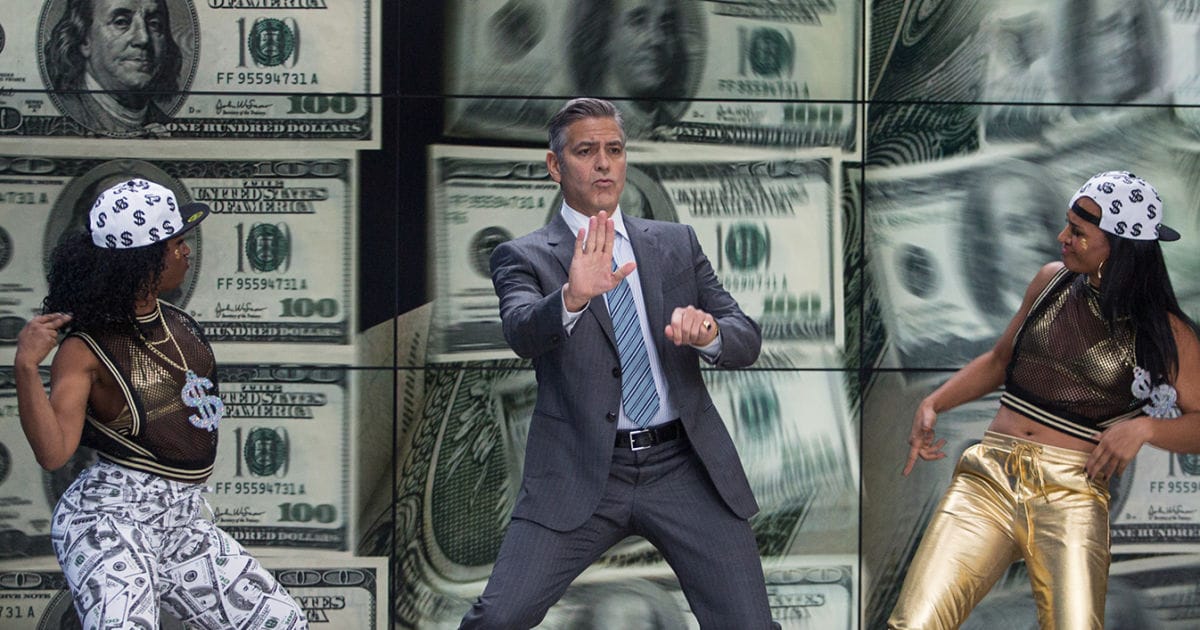
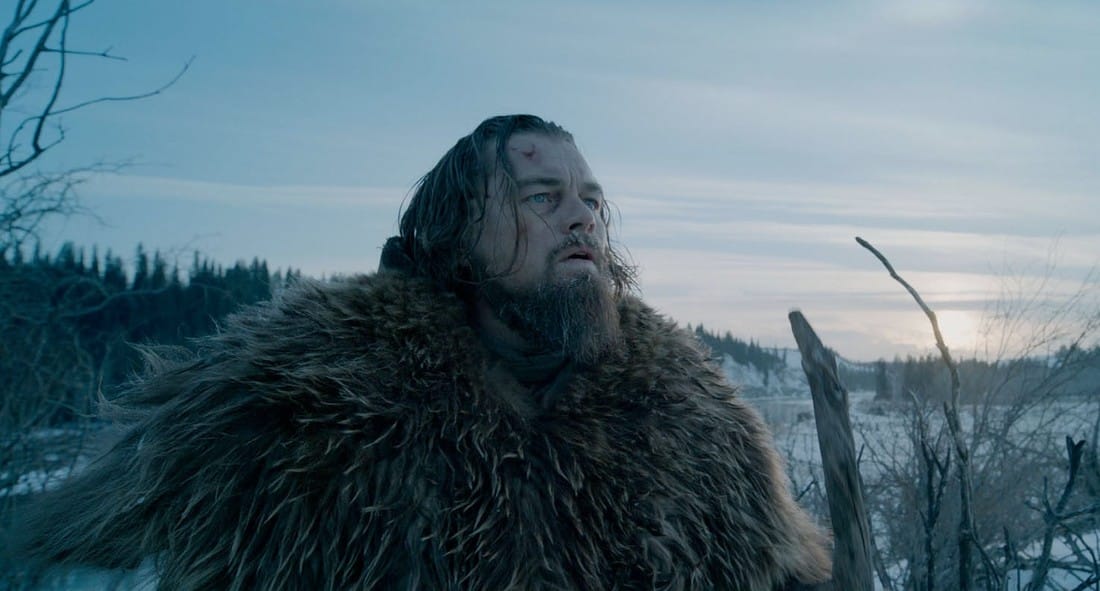
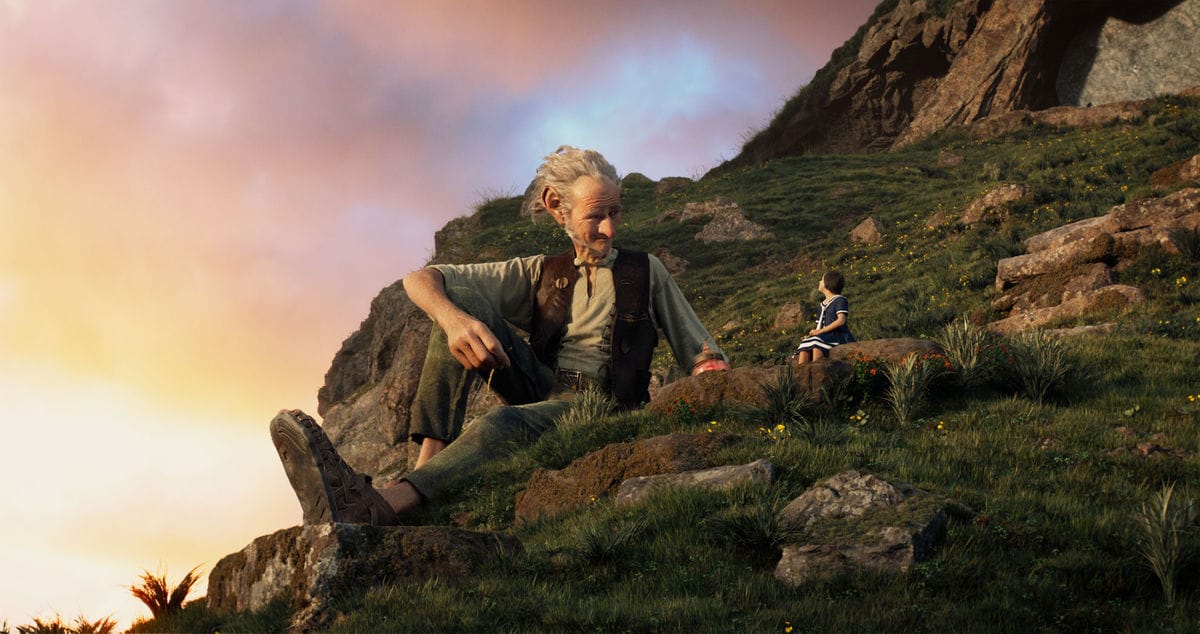
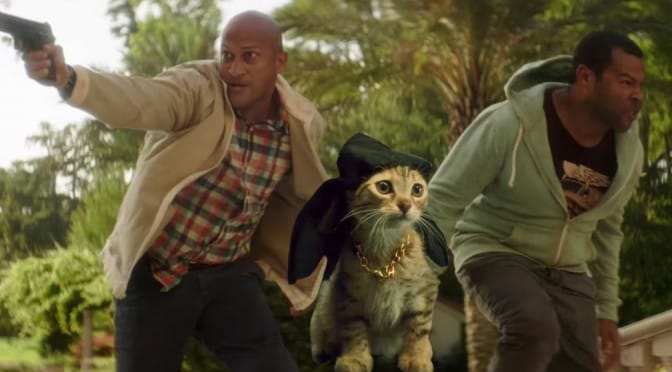
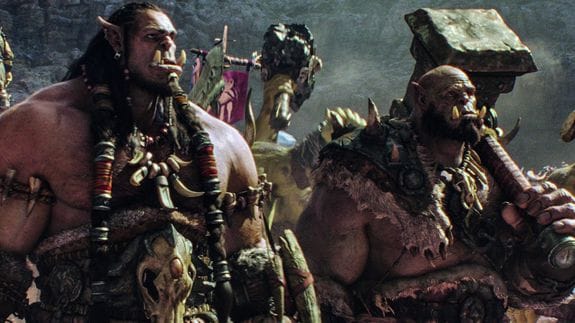
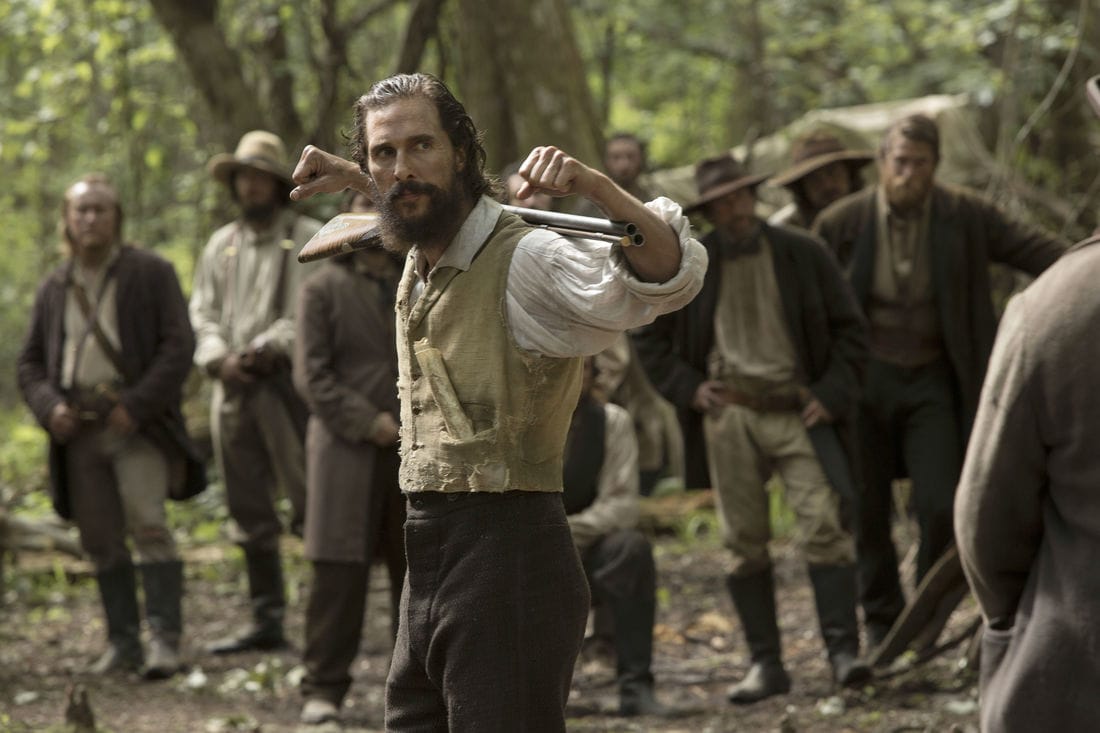
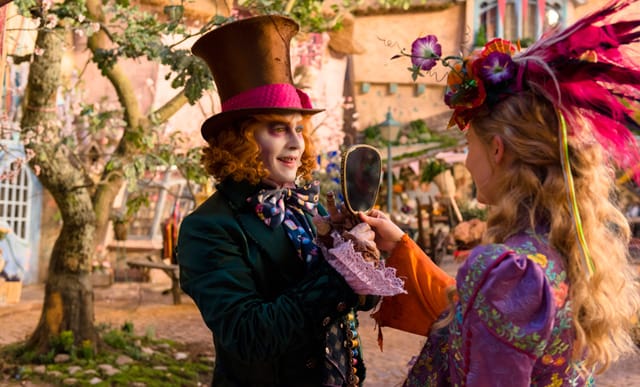
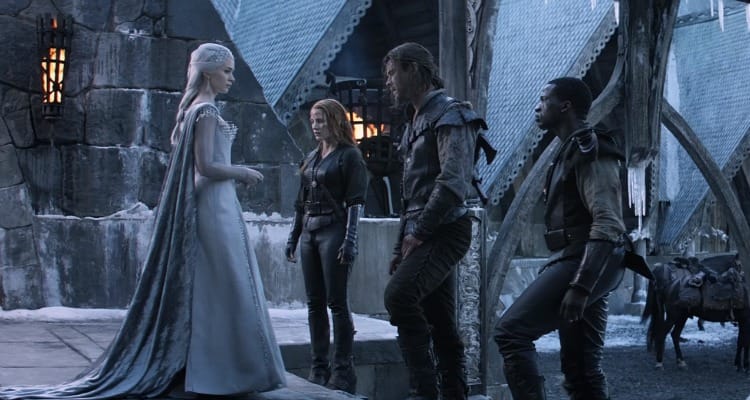
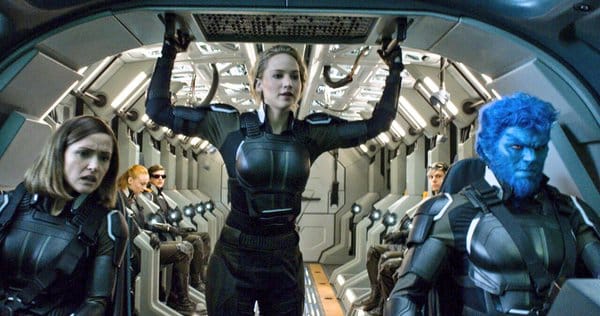
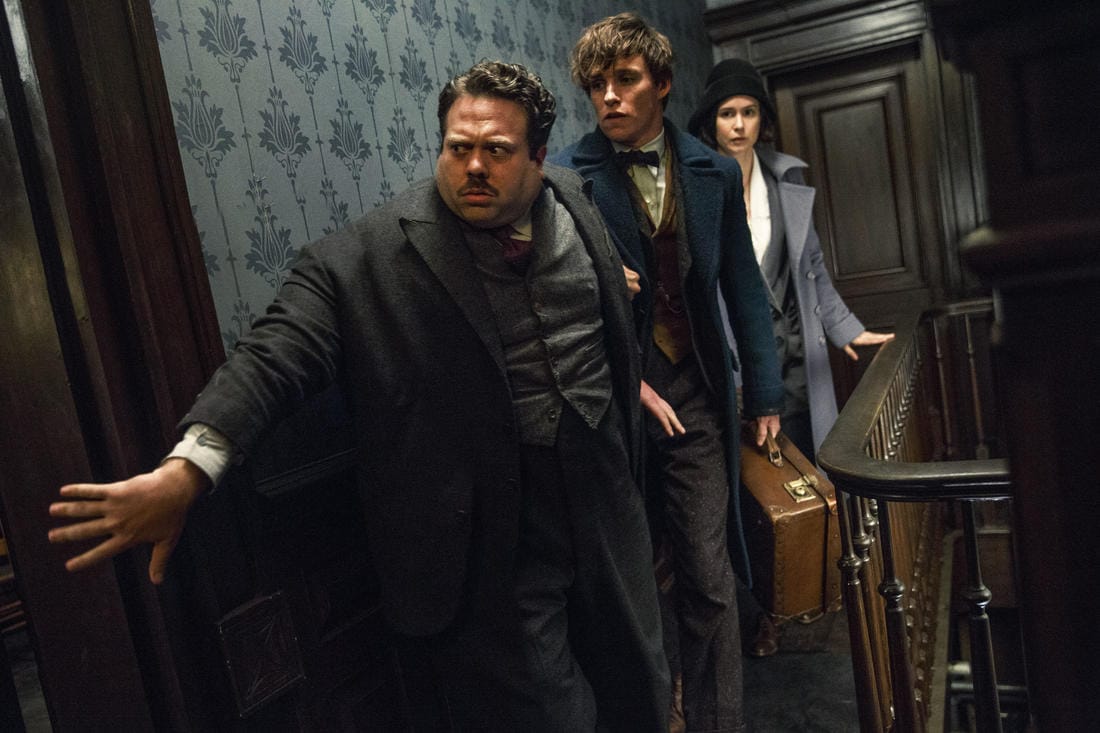
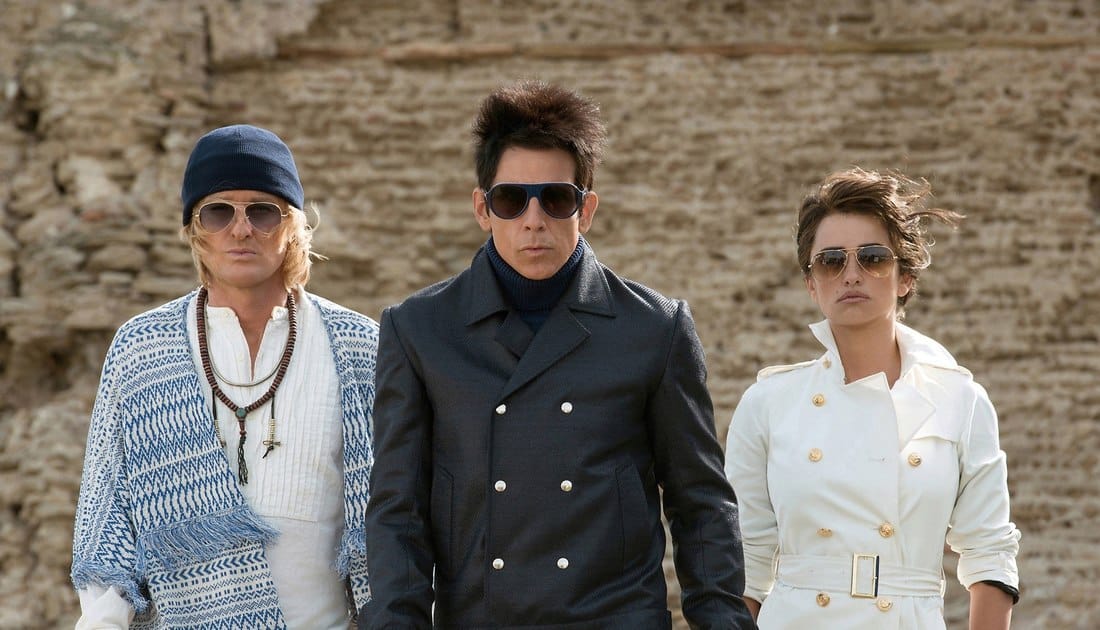
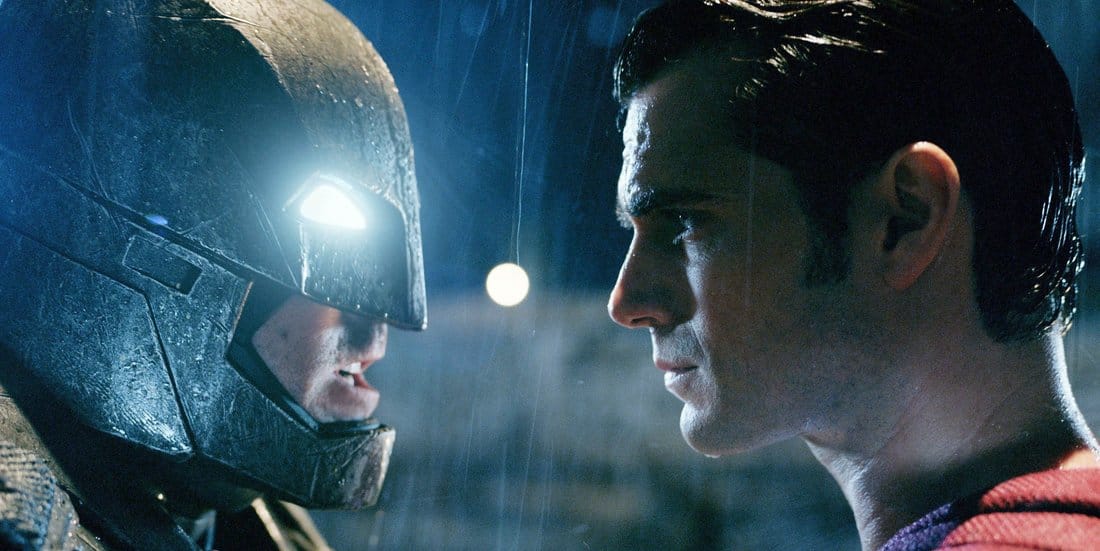
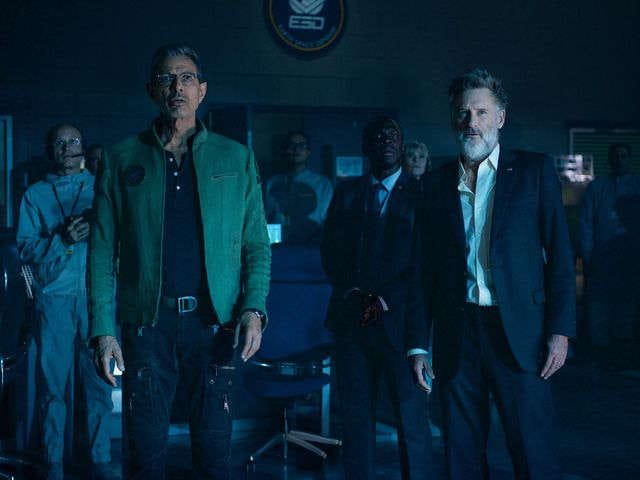
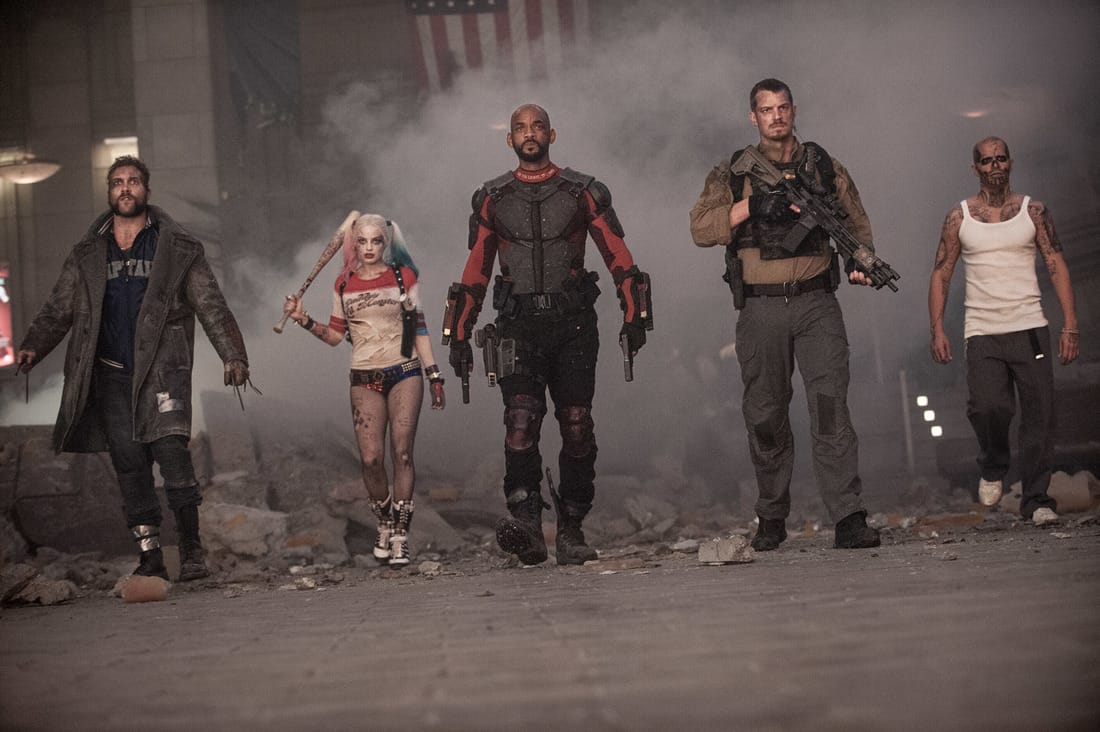
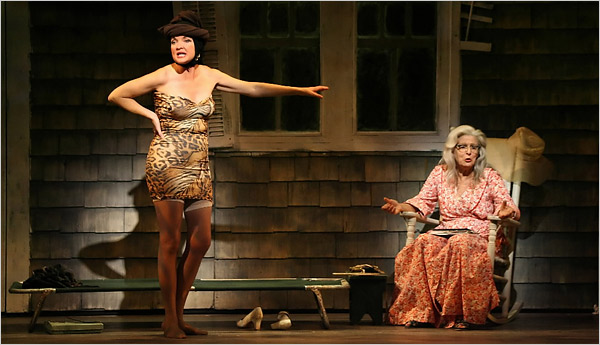
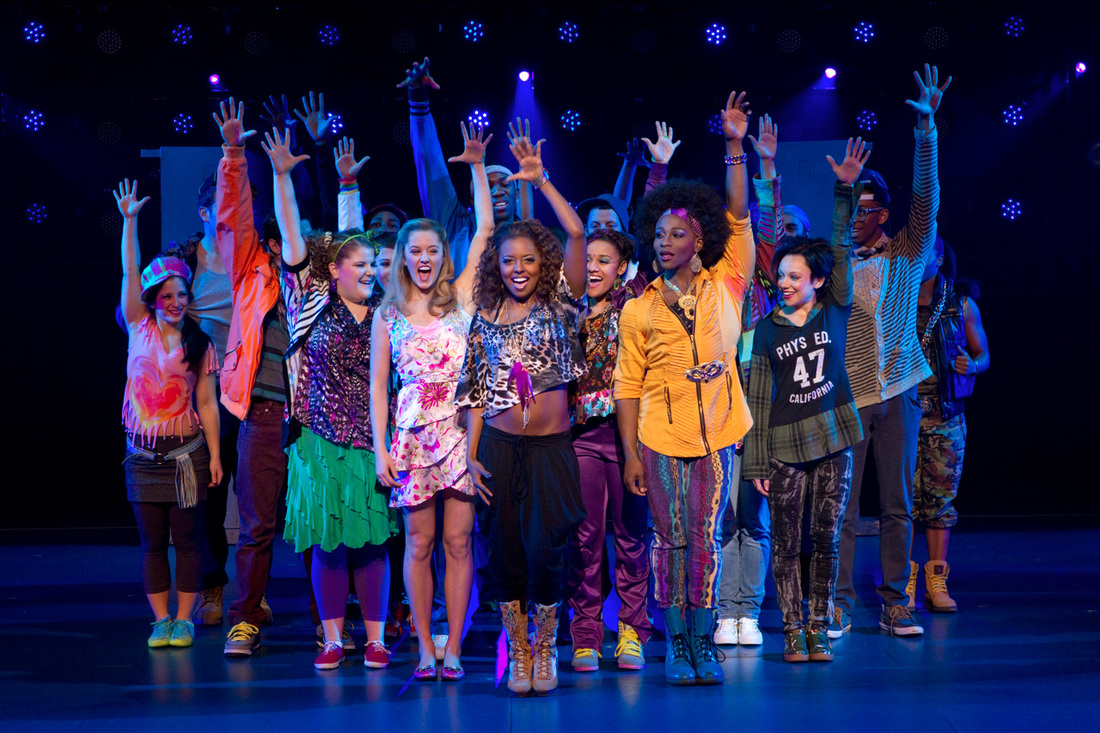
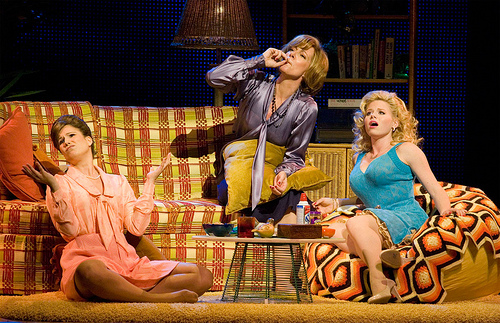
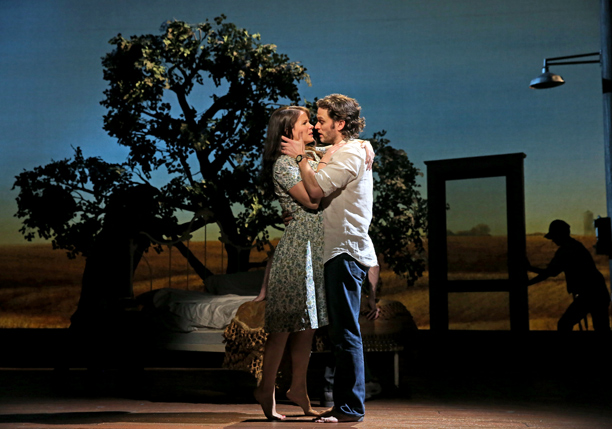
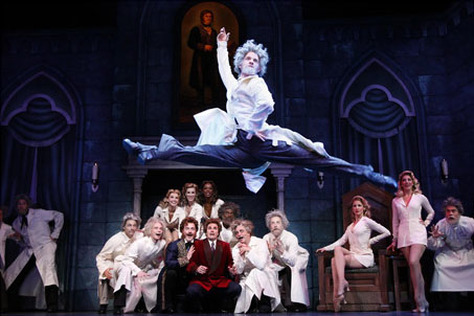
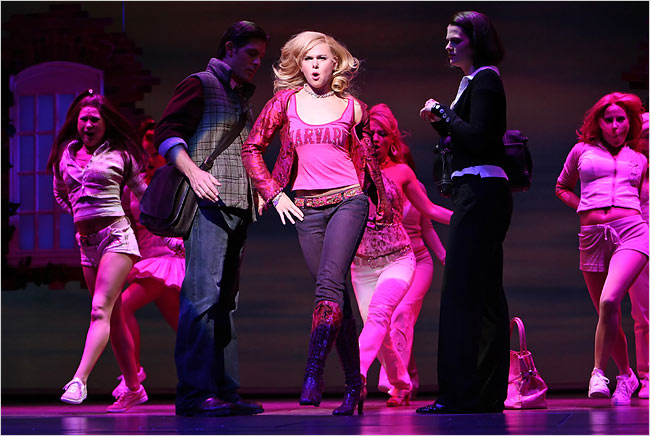
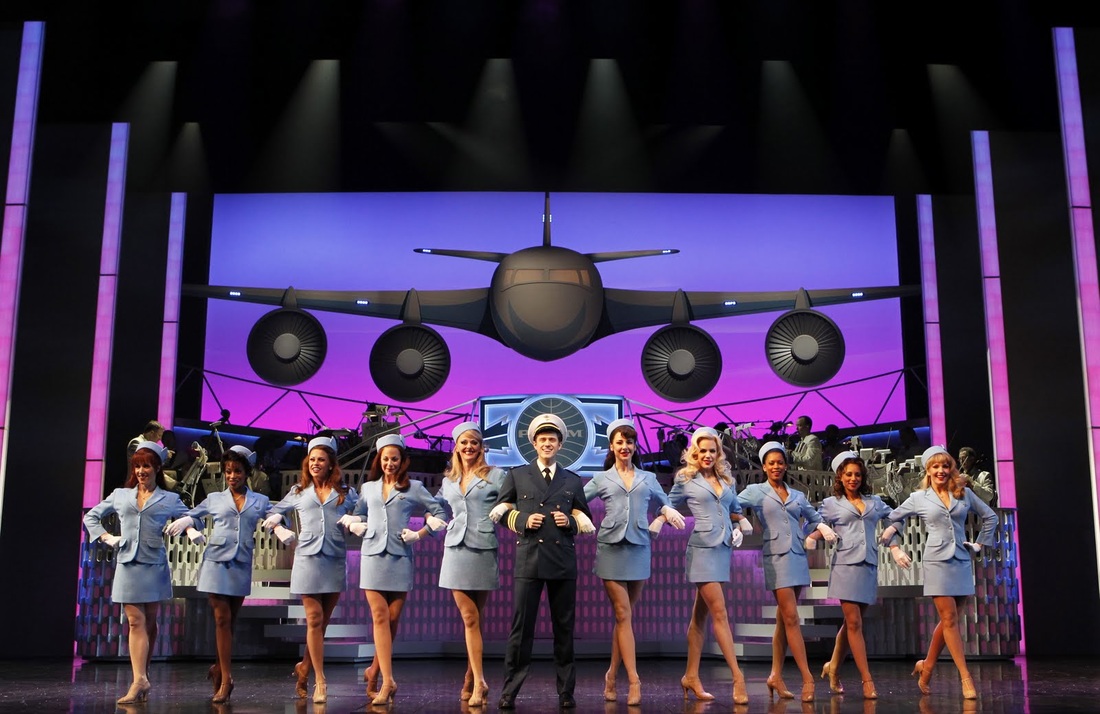
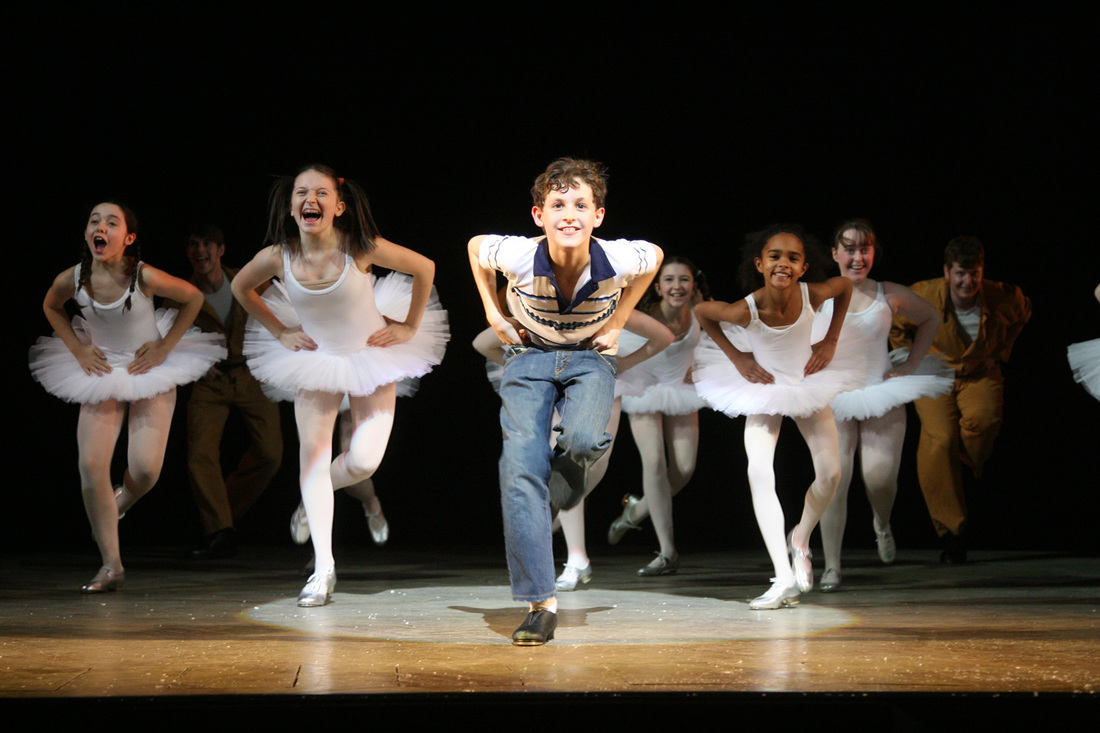
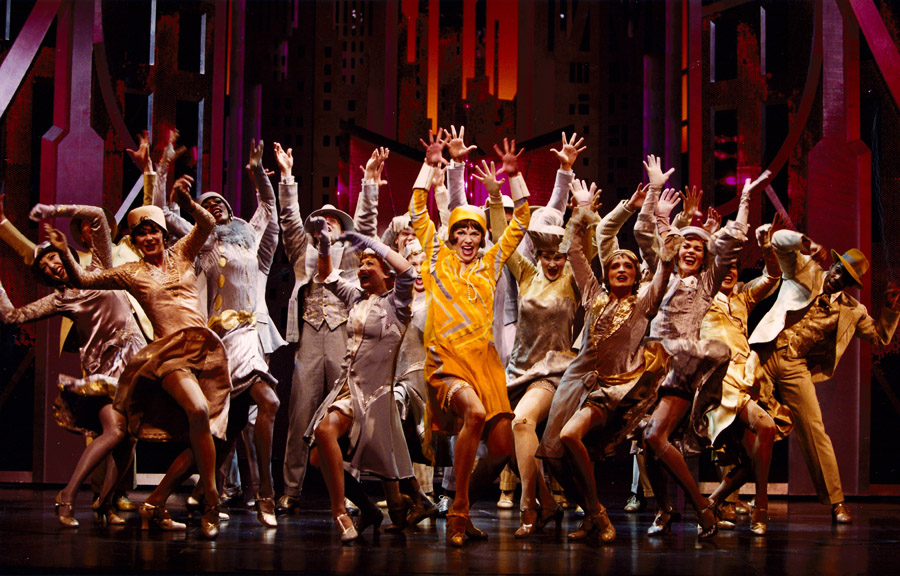
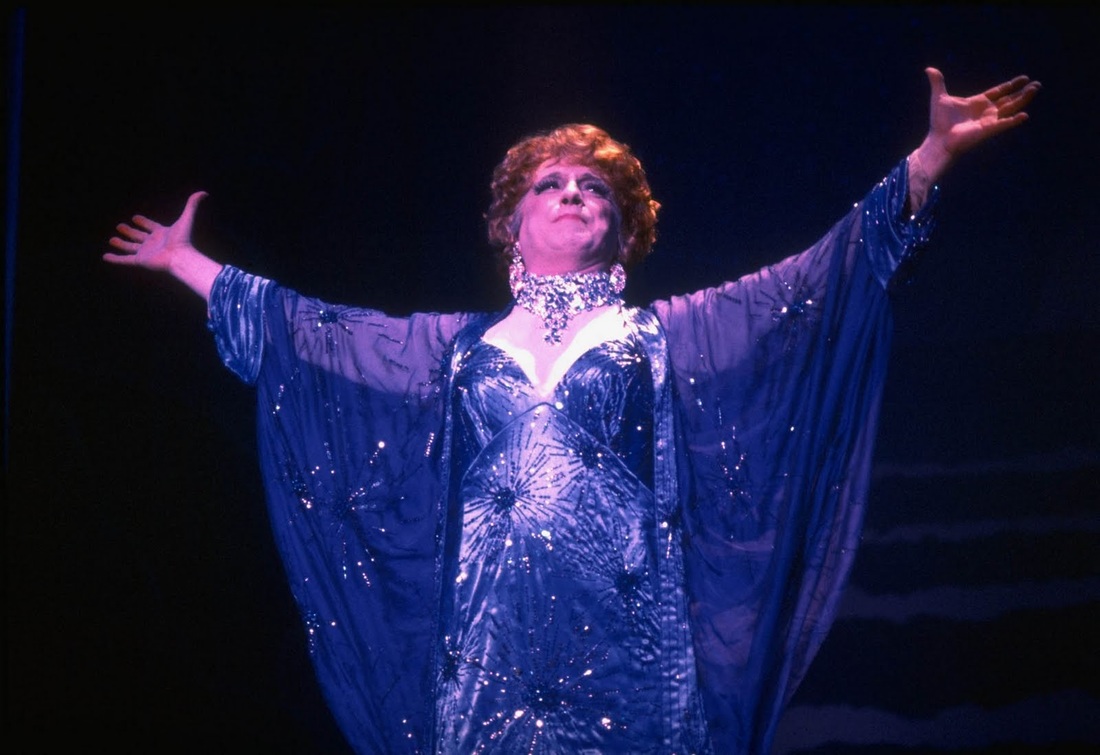
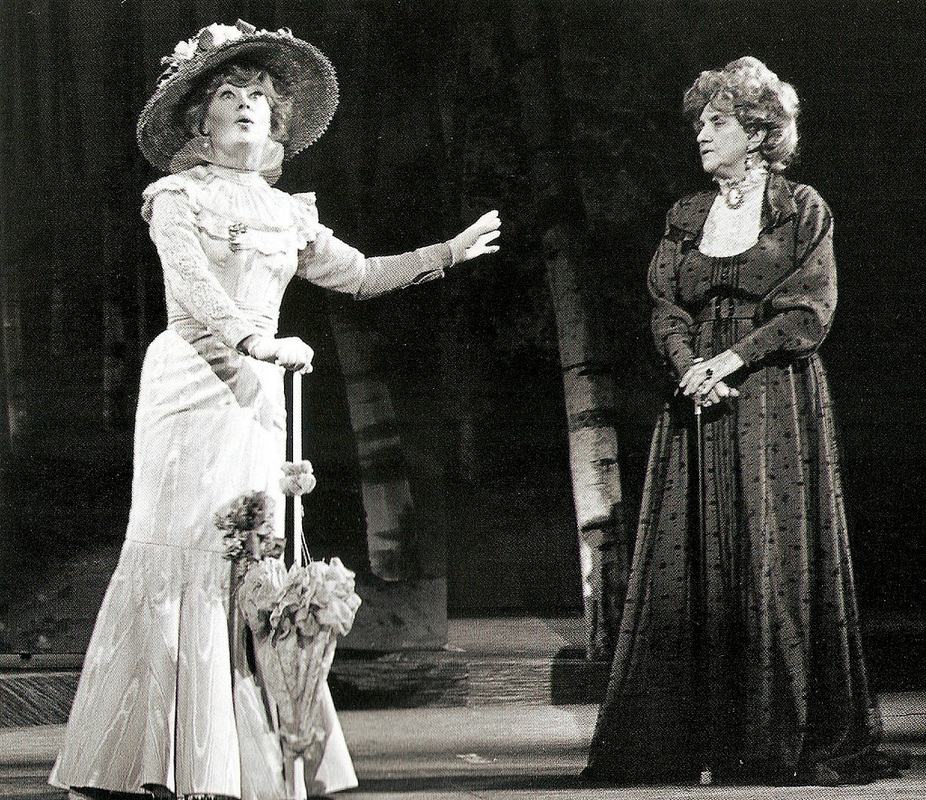
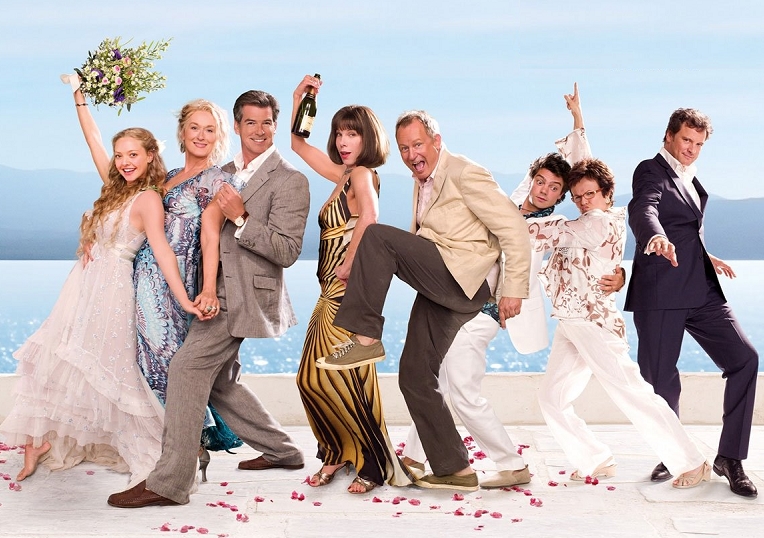

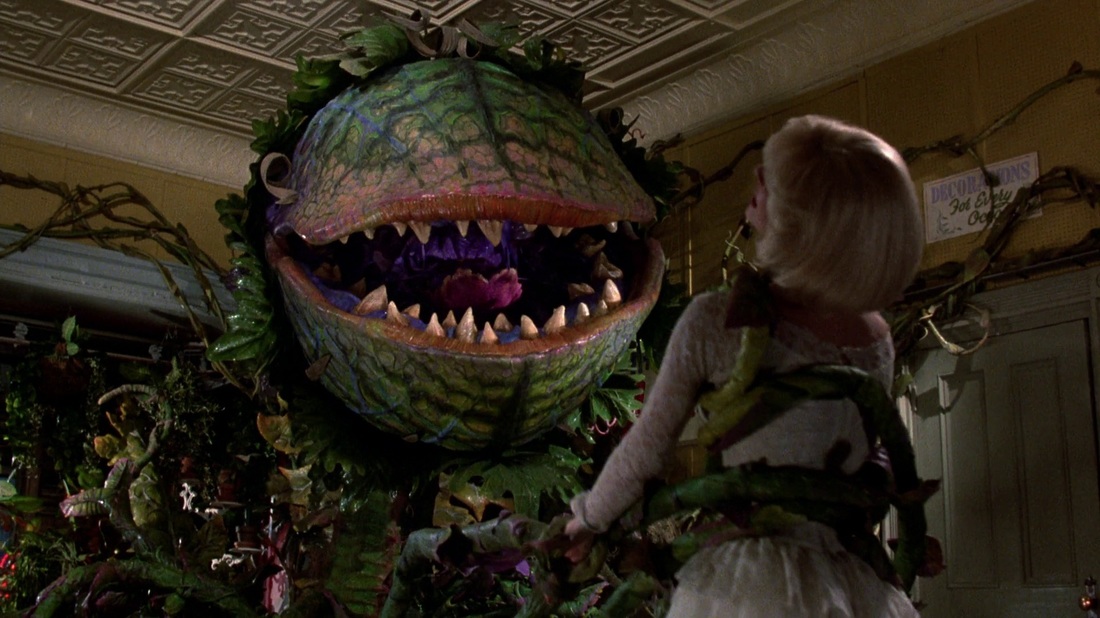

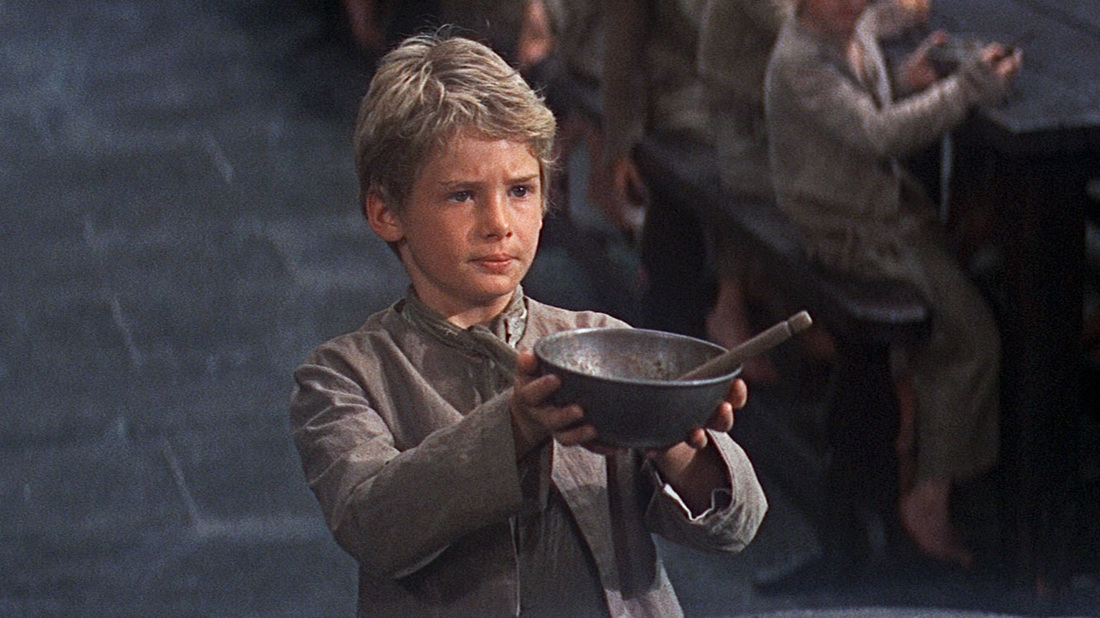
 RSS Feed
RSS Feed
